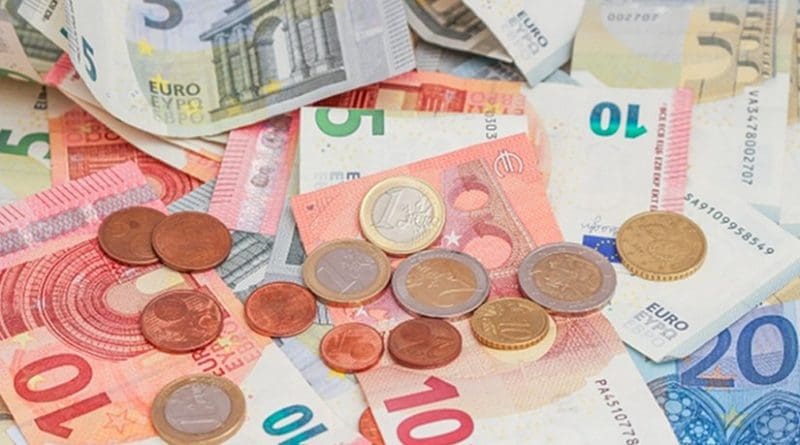Saving The Euro
By VOR
By Dmitriyeva Natalya and Denisova Olga
No European country, including Russia, would benefit from the collapse of the euro. Leave alone the economy, the dreaded unraveling of the Eurozone would be deadly politically. It would claim casualties far heavier than George Papandreou or Silvio Berlusconi and spell the disintegration of Europe. Being fully aware of this, the euro’s main pillars Germany and France are doing everything in their power to save the single European currency.
The progress of their efforts was under discussion between Russian and German experts during a Moscow-Berlin videolink on Wednesday.
Mr Vladimir Shemyatenkov was the Soviet Ambassador to the European Union from 1988 to 91:
“The EU’s powerhouses like Germany are prepared to massively splash out on saving the Eurozone and helping its periphery catch up with the nucleus in economic terms.”
Greece alone has already gobbled up tens of billions, and hundreds of billions more are to be spent before the Eurozone is back in shape.
Dr Seline Karo of the Konrad Adenauer foundation emphasized the importance of coordination and fiscal discipline:
“The EU cannot move on unless it adopts a single policy in currency matters. A common European strategy is needed, which would return Europe to agreed rules. Moreover, Europe as a whole cannot be saved without budgetary discipline in each and every European country.”
According to the German EU economist David Gregosch, Germany is learning from the current crisis:
“Greece has already received a whopping 65 billion euros in rescue funds. My impression, however, is that we are buying time, rather than permanent rescue. I hope donors such as Germany will invent a different tactic.”
German Finance Minister Wolfgang Schaeuble hopes that adequate efforts to tackle debts can enable countries like Greece to recover within 10 years. The Russian economist Dr Sergei Drobyshevsky, the Yegor Gaydar Economic Policy Institute, believes the recovery is likely to be much quicker. During the videolink Wednesday, he also praised the European efforts to save the euro:
“Although allowing Greece to drop out would probably make things better for the Eurozone, the EU and the European Central Bank are not even considering this possibility. Their determination to rescue Greece is intended to persuade investors that Europe has the political will to weather the storm, restore financial stability to the weaker countries and keep the euro.”

